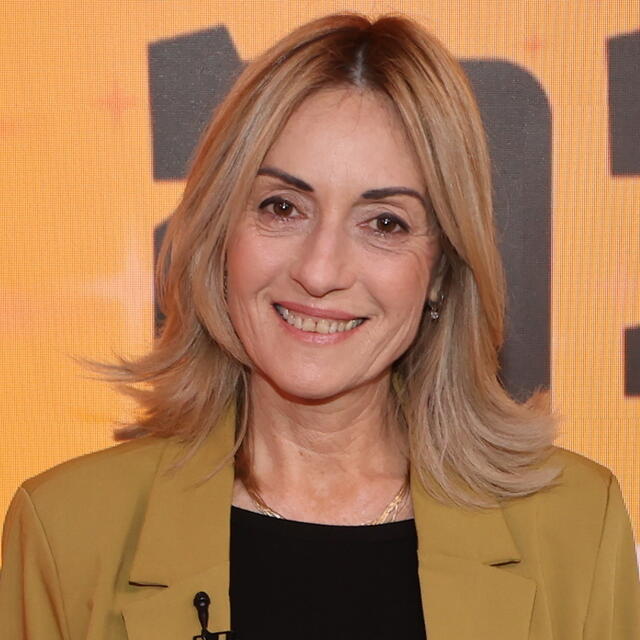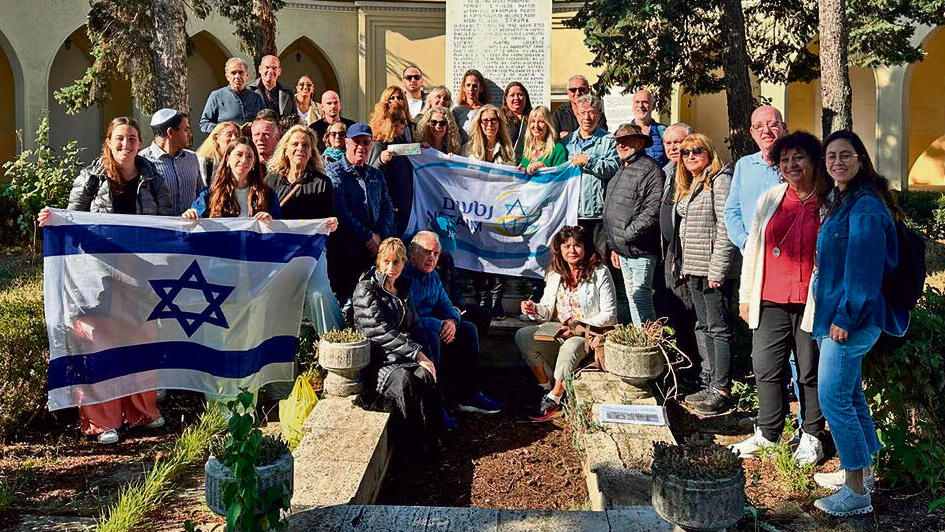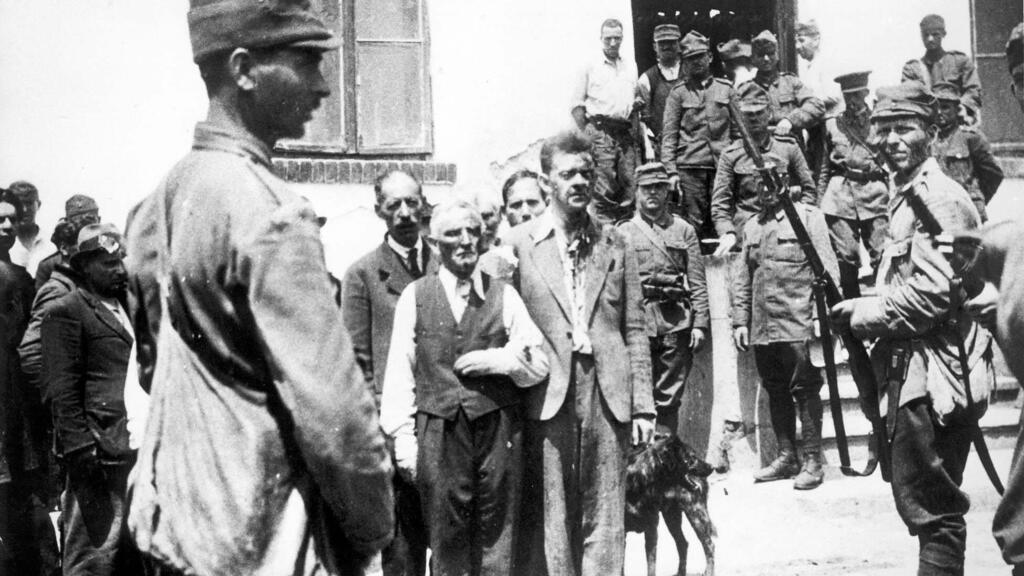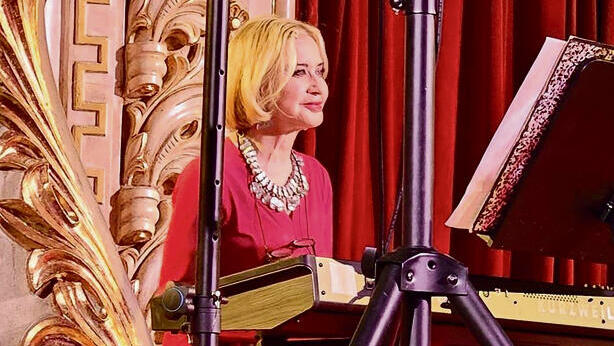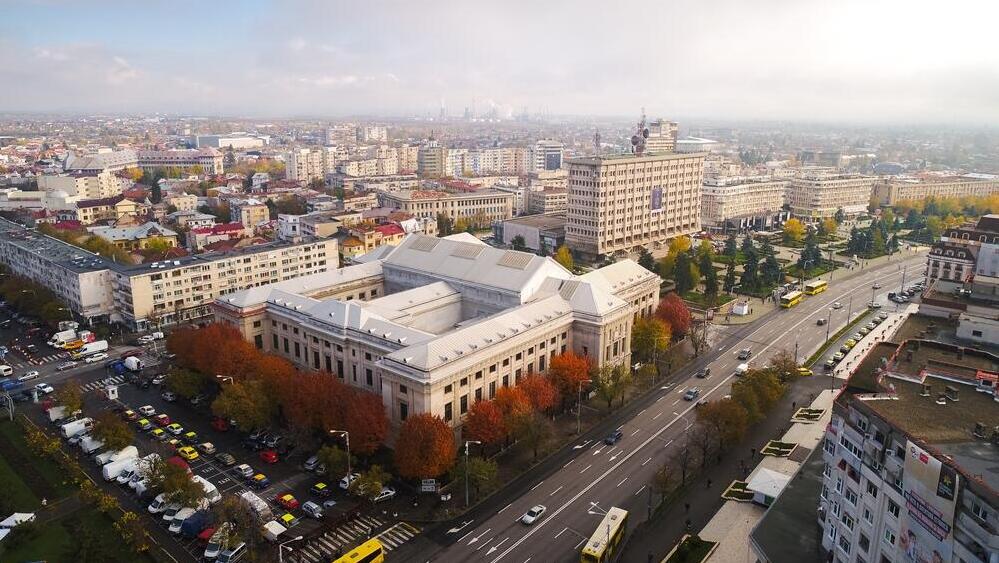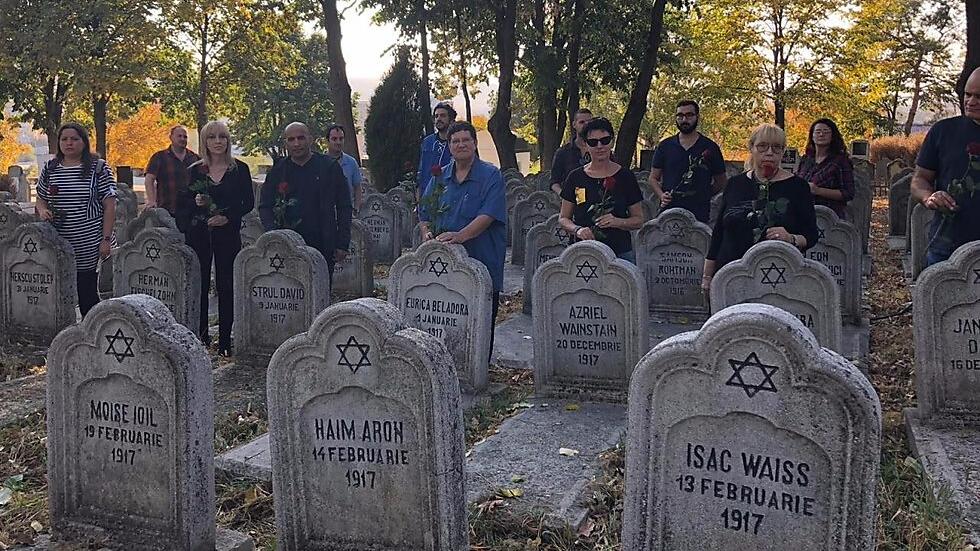Getting your Trinity Audio player ready...
"What would Nava say had she seen the event held in her honor at the Opera House in Bucharest? Apparently, she would have said: 'Have you gone mad? What did you do?'" Noam Semel, the former head of some of Israel's leading theaters, thought out loud at the end of a journey marking the 70th birthday of Nava Semel, his wife and one of Israel's leading writers, poets and playwrights, who passed away at the age of 63.
The five-day journey through Romania that Semel and about 40 other participants took to get a closer look at the Holocaust of Romanian Jews, which was not talked about enough. "Nava was a modest woman. All of her book launches, in Israel and around the world, took place in small venues," says Semel. "When she passed away, I decided to immortalize her artistic memory through the books, plays, and operas she wrote, which were dedicated to Jewish and Israeli memory."
Semel, Shlomo Artzi's sister, was the daughter of Yitzhak (Ezio) Artzi, born in Sirte, Romania, a Zionist activist, politician, and MK for the "Independent Liberals" party, and Margalit (Mimi), also born in Romania.
"Nava used to say that the Jewish people have no assets, they have memories. She was worried that they wouldn't remember that there was a Holocaust, and she gave the nickname 'the relay race of the messengers of memory' to the desire to see the torch of memory passed from generation to generation. It means traveling, seeing, remembering, telling, passing on."
Can you imagine what Nava would have written in the wake of October 7?
"Probably another work that reflects the Israeli, Jewish identity, from which the message would emerge that the Holocaust is not over."
The first stop was Iasi, the second largest city in Romania, where one of the most brutal pogroms was carried out against Jews during the Holocaust. From there, the group continued to Siret, from which all Jews were expelled in June 1941, and to visit the only synagogue that survived there.
The next stop was the capital, Bucharest, where the tour was joined by Shiri Madar, CEO of the Netaim program, an international Jewish Zionist youth movement, and ten bereaved sisters and brothers from the 'My Brothers' association.
The visit to the Lauder-Reut Jewish school was led by the principal, Tova Ben Nun-Cherbis, who was among the organizers of the pro-Israel demonstrations in Romania at the beginning of the war. The previous visit to the school, in July 2023, was led by Ofir Libstein, the former chairman of Netaim and head of the Shaar Negev regional council, who was one of the first to be murdered on October 7, when he defended Kibbutz Kfar Aza. His son, Nitzan, was also murdered by Hamas terrorists.
'Systematic murder took place in the Romanian periphery'
At the Jewish school, Semel lit Shabbat candles with candlesticks he brought with him from Israel, and on which the book "Our Candlesticks" written by Semel and published after her death is based. "Thanks to the candlesticks and the book, my connection to 'Netaim' was formed," he says.
"When I was the CEO of Habima, Ofir and Shiri called me and asked to meet. I remember Ofir entering my room, with 'Our Candlesticks' in his hand. After about an hour, we decided to collaborate. Thanks to this connection, the book was translated into five languages."
"Establishing 'Netaim' was the fulfillment of Ofir's dream," says Madar sadly. "The goal is to give expression to Jewish culture in small communities around the world as a living bridge to Israel and for the preservation of the memory. We do this through Jewish culture, like Nava's works. Ofir always said that the multitude of Jewish communities in the world is like the kibbutzim because in the end, the Jewish people are one big community."
"Here, in Bucharest, our journeys began in the wake of the Holocaust. One evening, Ofir and I were sitting in a restaurant, and he said: 'Shiri, let's dream together. This is what the communities need.' Since then, we have visited here a lot and launched projects," she says, showing a photo in which they are seen together at the launch of one of them.
At the Shabbat reception at the hotel, conducted by Shai Abramson, former chief cantor of the IDF, Sandra Sade shares the excitement that accompanies the journey: "I was 15 when I immigrated to Israel, and to this day I feel a bit like a new immigrant.
"My Romanian is perfect; my Hebrew is not. Even there, I wanted to be an actress and received encouragement from my parents, who were opera singers. When Noam asked me to recite a passage from Nava's play in Romanian, my heart jumped with excitement. In the same breath, I thought this was an opportunity for Gabi and me to connect with our roots."
"This morning we visited the house where we were born. When we got to the street, I started having flashbacks. I remembered the boy who was my first love. He threw a snowball at me, and because my mouth was open, the snow went down my throat.
"I understood then that love hurts," she laughs. "I remembered the names of people who lived on the street and the quince tree in the small yard we had." What did your parents tell you about the Holocaust? "The Holocaust, which took place in the outskirts of Romania, didn't have time to reach Bucharest. There was anti-Semitism. There were difficult stories about Jews hanging on meat hooks in butcher shops."
"The Romanian Jews were murdered on their own land, at unknown murder sites, by the gentile Romanians. That is why at first they perceived their narrative as marginal, because they did not have 'Birkenau' on their resume and did not have a story to tell."
"I, who was born four years after the end of World War II, belong to the second generation of the Holocaust, which understood and amplified the magnitude of the disaster. That's also what's wonderful about Nava's work. When I participated in her play, 'Talk About Their Whereabouts,' which she dedicated to the memory of her parents, I felt connected to the reality it describes.
"When we immigrated to Israel, we lived for two years in the Bat Yam transit camp, and although my parents objected, I worked at 'Shraga Jewelry' on Dizengoff Street during the day, and I studied at the Municipal High School in the evenings, to help support the family. Just like Nava's heroine in the play," she added.
"I was exposed to the story of the Holocaust of Romanian Jews late in my career," says Naama Egozi. "During the two decades in which I have been dealing with the Holocaust, the center has always been on Polish Jewry, in the extermination camps, even though the Jewish community in Romania was then the third largest in the world after Poland and the Soviet Union.
"There are still many who claim that there was no Holocaust in Romania, both because the systematic murder of Jews took place only in the Romanian periphery and the Jews immigrated to Israel from the center, and also because the stories from the extermination camps took the main stage.
"The Romanian Jews were murdered on their own land, at unknown murder sites, by the gentile Romanians. That is why at first they perceived their narrative as marginal, because they did not have 'Birkenau' on their resume and did not have a story to tell. The public discourse in Israel said, 'What are you bringing us now, another story?'
"Jean Ancel, who was an Israeli historian born in Romania, brought about a change in the perception of Romania's role in the Holocaust through his research, but he died before he could finish his work, and the research was stopped. Now the Romanians are taking stock there and have the honesty and courage to take responsibility."
What was Yitzhak Artzi's role in rescuing the Jews of Romania?
"During the war, when the Romanian government approved, he rescued orphan children from Romania, and managed to increase the quota by thinking outside the box. For example, he went to the Jewish families and asked the parents to declare their children orphans in order to increase their chances of survival. In total, Artzi was involved in rescuing about two thousand orphans, who would have died if they had stayed there."
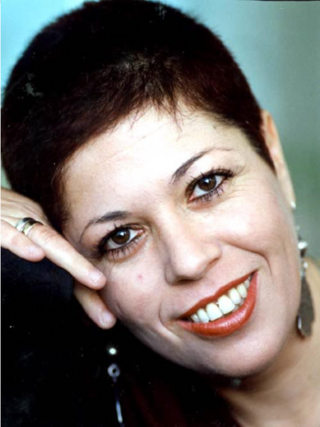 Nava SemelPhoto: Shalom Bar Tal
Nava SemelPhoto: Shalom Bar TalThe five-day journey brought the group back memories. Among other things, the group visited synagogues that survived in Romania, the Jewish cemetery in Bucharest, and the Holocaust Memorial, which was established in the city by the Romanian government.
There were also quite a few happy moments, such as the nightlife in the vibrant and colorful Old Town of Bucharest and papanash, the fried and high-calorie Romanian doughnut served with jam and sour cream.
The final evening took place in the Opera House hall in the presence of the Israeli Ambassador to Romania, Dr. Lior Ben Dor, the son of Holocaust survivors from Romania, and local cultural representatives.
The evening's mix included readings and singing from Semel's works in Hebrew and Romanian; in a clip prepared in advance, Shlomo Artzi sang "Romania" and "Eretz Hadasha", which were written and inspired by his parents' stories. The evening closed with the song "Hallelujah" and the Israeli national anthem.
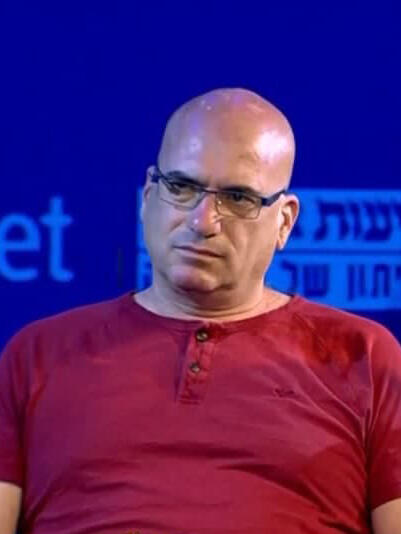 Ofir LibsteinPhoto: Contact
Ofir LibsteinPhoto: Contact"If Yitzhak had seen the current mayor of Siret, Adrian Popoiu, arriving at the event in Bucharest after a seven-hour drive, he would have come out of the grave and applauded with excitement," Semel summed up the evening and the days. "I suppose that for him it was an amazing closure and proof of human love."
Get the Ynetnews app on your smartphone: Google Play: https://bit.ly/4eJ37pE | Apple App Store: https://bit.ly/3ZL7iNv
"Our drama as a Jewish people and as Israelis is great and turbulent," adds Sadeh. "We live the pages of history every moment, hoping that in a moment we will turn a page to a more successful one. There were moments, such as the meeting with the bereaved brothers, that brought me back to the past, to things that want to be forgotten and must not be forgotten, alongside the importance of our lives in our country."


